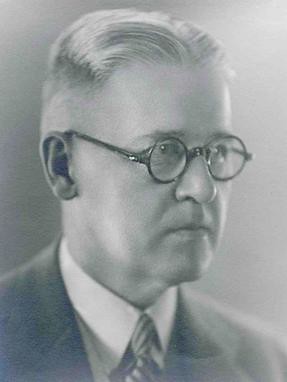
The concept of ensuring access to foreign markets for U.S. agricultural products dates nearly to the founding of the Republic, when Thomas Jefferson was posted to Paris to, in his own words, ensure “the receipt of our whale-oils, salted fish, and salted meats, on favorable terms; the admission of our rice on equal terms with that of Piedmont, Egypt and the Levant; a mitigation of the monopolies of our tobacco by the Farmers-general, and a free admission of our productions into their islands.”
Long before the Foreign Agricultural Service (FAS) officially became the international arm of USDA in 1930, U.S. agriculture benefited from international trade, which resulted in higher farm incomes and economic prosperity. As USDA celebrates its 150th anniversary, FAS continues its groundbreaking work linking U.S. agriculture to the world to enhance export opportunities and global food security.
In 2003, I was asked to research FAS’ organizational structure. In the process, I uncovered FAS’ deep roots. In the course of that research, several individuals stood out as having played pivotal roles in FAS’ past. Louis Guy Michael was really the father of FAS, as he was singularly responsible for passage of the 1930 legislation that created the agency and then was one of our first four agricultural attachés. Les Wheeler, who led FAS from 1931 to 1948, transformed the agency from a small analytical unit into a force in international agricultural trade, adding trade policy, food aid, and technical assistance to the agency’s portfolio. Owen Dawson’s reporting on Chinese agriculture from Chunking during World War II presaged the work of USDA agricultural advisors in Iraq and Afghanistan today. Francis Flood rafted through Burma, motorcycled across Africa, and hiked the jungles of Asia before running the agency in the 1950s. All of these individuals demonstrated the innate characteristics of FAS employees: they are dedicated to their craft and serious about their responsibilities, yet fully enjoy their lives along the way.
Staff at the National Archives, Library of Congress, National Agricultural Library, and Bunche Library at the U.S. Department of State were invaluable sources of information on FAS’ past. In addition, the agency’s former leaders and their family members and descendants as well as many former FAS employees graciously shared historical documents, family photographs, and personal stories. These materials document the fortitude of the FAS family. In the 1930s and 1940s, like today, we operated on a shoestring budget, yet we have performed and continue to perform our important mission for U.S. agriculture without fail.
To read about USDA’s recent accomplishments in agricultural trade, including record sales and a record trade surplus, click here. And to read the Library of Congress article on the history of FAS, click here.
